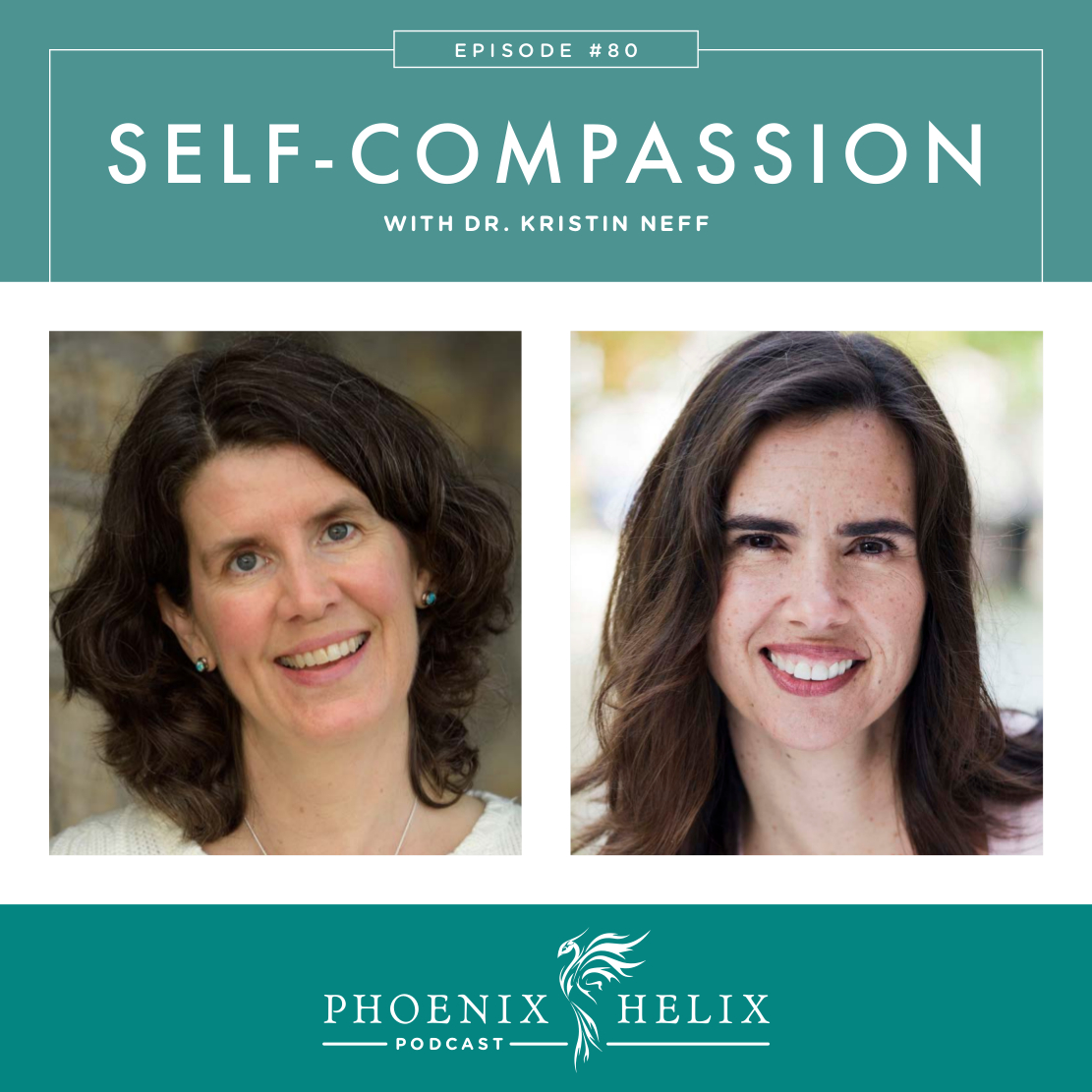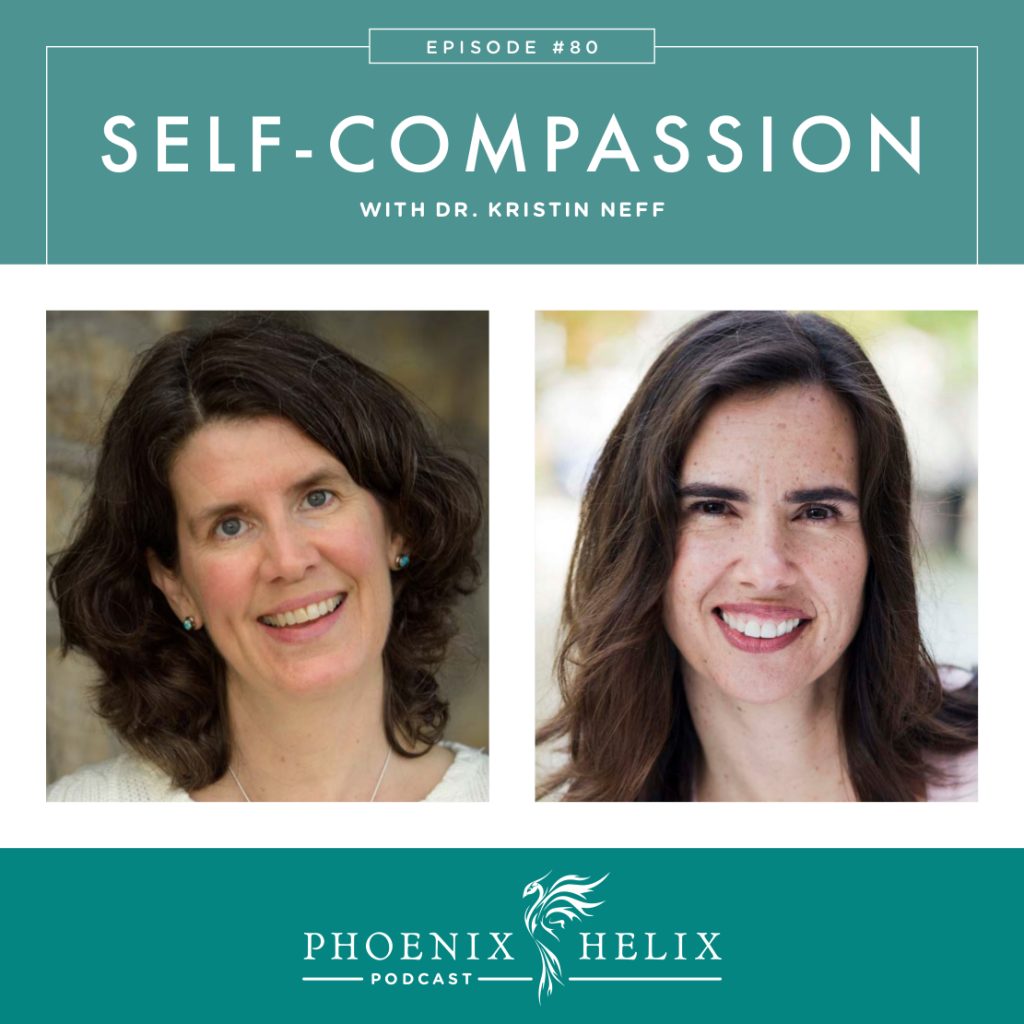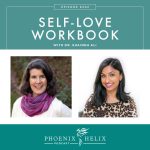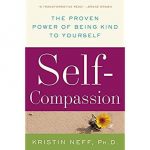The Power of Being Kind to Ourselves
When we have autoimmune disease, we’ve been told that our body is literally attacking itself, and it’s not uncommon to feel betrayed by our bodies, or to feel like we have betrayed them by the choices we made in the past. We end up feeling at war with ourselves, and that’s not a healing state. However, when we talk about self-love, that can be easier said than done. Is self-compassion something we can learn? What are its potential benefits for our health? In this podcast, we speak with Dr. Kristin Neff, author of the book, Self-Compassion: the proven power of being kind to yourself. She has been teaching self-compassion and leading the research in this field for the past 15 years.
Listen to the Show
- Subscribe to my podcast through your favorite podcast app: iTunes, Stitcher, Google, TuneIn, Spotify, Amazon, etc.
- You can also listen to the episode right here through the player below, and if you subscribe to my newsletter you’ll get notified of future episodes.
Podcast: Play in new window | Download
Show Notes
- Intro (0:00)
- Thank You to Our Podcast Sponsor – Paleo on the Go (1:50)
- A frozen meal delivery service, they have a large menu of items for the paleo autoimmune protocol (AIP).
- Use the code PHOENIX for 10% off your first order.
- Eileen’s Updates (3:20)
- On the weeks between podcasts, I write articles on my blog. If you don’t want to miss out, subscribe to my weekly newsletter.
- Meet Kristin (4:40)
- Dr. Kristin Neff is an author, teacher, and researcher in the field of self-compassion.
- She was first introduced to the idea of self-compassion in a meditation workshop, and the positive impact it had on her life changed the focus of her career.
- It made an especially powerful difference seven years later, when her son was born autistic. When he exhibited challenging behaviors, Kristin found that first treating herself with self-compassion helped her find the strength and resilience she needed to cope well. She also discovered that as she calmed herself, her son began to calm simultaneously.
- Kristin wasn’t born with a natural gift for self-compassion. It’s a skill she has practiced for many years, until now it has become a habit.
- Defining Self-Compassion (11:00)
- What It Is – Self-Compassion Has 3 Components
- Self-kindness – treating yourself the way you would a good friend. Being an inner ally, as opposed to an inner enemy. This is unconditional. It is independent of our successes or failures.
- Common humanity – the Latin roots of compassion mean “to suffer with”. It’s an awareness that we are not alone in our suffering. That everyone has challenges, and everyone makes mistakes.
- Mindfulness – the ability to turn toward and be with “what is.” When we repress or deny or criticize how we feel, our goal is to suffer less, but the result is that we suffer more.
- What It Is Not:
- Self-pity – when we falsely believe that our life is worse than other people’s, and we forget that all human beings suffer. The way and the timing might differ between people, but suffering is part of life.
- Self-judgement – when we falsely believe that we should be perfect, that we should be able to “fix” ourselves, and we forget that everyone is imperfect, and everyone makes mistakes.
- Self-indulgence – when we amplify our suffering by wallowing in it, and see ourselves as special and separate from the rest of humanity.
- Self-esteem – this is a feeling of self-worth that is often contingent on outer circumstances. We have it when we succeed and lose it when we fail.
- Selfishness – when we think only of ourselves, to the exclusion of all others.
- What It Is – Self-Compassion Has 3 Components
- Common Barriers to Self-Compassion (20:22)
- Comparing yourself to others.
- Perfectionism.
- Repressing or denying your pain.
- Fear that self-compassion will undermine motivation.
- Fear that self-compassion will make you weak.
- Benefits of Self-Compassion
- Improved motivation, confidence and performance. It’s the difference between having a supportive, encouraging coach vs. a cruel coach.
- Improved relationships. The ability to give to ourselves makes us more able to give to others.
- Reduced emotional reactivity. The ability to respond calmly during times of stress.
- Enhanced feelings of strength and resilience.
- Activation of the parasympathetic nervous system, which reduces cortisol (the stress hormone) and increases oxytocin (a relaxation hormone) and endorphins (the body’s natural pain relievers).
- Note: these benefits were shared intermittently throughout the podcast, which is why there’s no time stamp for this topic. Peruse the research here.
- The Difference Between Critical Self-Judgment & Discriminating Wisdom (23:39)
- Critical Self-Judgment refuses to accept that we are flawed, equates mistakes with failure, increases anxiety, and decreases motivation and performance. It gets in the way of both ambition and success, due to decreasing confidence and fear of failure. It breeds shame.
- Discriminating Wisdom: The ability to see clearly which behaviors are working in our lives and which aren’t. The ability to see all the factors at play in a situation, and how we can arrange them for the best chance of success, while also understanding that success isn’t always possible. Self-compassion increases confidence and achievement in all areas of life.
- Assessing Our Current Level of Self-Compassion (27:23)
- Kristin has a self-compassion self-test on her website.
- Self-Judgment & Autoimmune Disease (28:35)
- It’s amazing how many of us blame ourselves for being ill – that somehow the diagnosis itself is a personal failure, and self-cure should be possible. While the mind-body connection is real, and it can reduce inflammation and help alleviate autoimmune symptoms, it’s not a magical cure. Blaming ourselves for having autoimmune disease is not only unfair to ourselves, but is actually an inflammatory mindset that activates the stress response throughout our body. Self-compassion provides the anti-inflammatory benefits of the mind-body connection without feelings of failure and shame.
- Another common reaction to having autoimmune disease is feeling anger and hatred toward our bodies, as if we are separate from our bodies, when in truth – that anger and hatred is simply directed toward ourselves. Again, this isn’t a healing mindset, and a self-compassion practice can help slowly transform these feelings. Guided Meditation: Compassionate Body Scan.
- Practicing Self-Compassion (34:05)
- This isn’t an inborn trait. It’s a skill we can learn.
- Kristin has a number of exercises on her website, from short to long, guided and self-directed.
- She also teaches online courses and in-person workshops.
- Beginner’s exercises:
- Listen to your internal dialogue and ask yourself: Would I say this to a good friend? What would I say to someone I cared about? What tone of voice would I use? What would my body posture be? Start practicing speaking to yourself the way you would to a good friend.
- Compassionate touch: Touch is a key trigger of the compassion response. Place your hands on your heart, or on your stomach, or on a part of your body that’s hurting. You can also cradle your face, hold your own hands, rock your body, give yourself a gentle hug or a little kiss. Everyone is different regarding what touch comforts them the most. Touch can help calm down the body which makes way for a more compassionate mindset.
- Guided Self-Compassion Break (40:51)
- Kristin guides us through a short self-compassion exercise.
- When You First Practice Self-Compassion (48:23)
- Tears are common. If we’re used to suppressing or ignoring pain, we can discover feelings we didn’t know were there. Tears are a sign of relaxation, emotional opening, and healing.
- Resistance to accepting pain. It can feel uncomfortable to turn toward our pain, but research shows that resistance and repression amplify pain. Compassionately turning toward our pain is what allows us to move through it. This is true for both physical and emotional pain.
- Backdraft: when self-criticism gets worse before it gets better. This isn’t a sign you’re doing it wrong. It’s a phase many people go through, especially if you have a strong history of self-criticism. If you feel overwhelmed when you first begin to practice, it’s OK to take it in baby steps. The practice of self-compassion needs to be done compassionately. There are also in-depth courses and workshops available. And if you’re a trauma survivor, it can be helpful to do this work with a skilled therapist.
- Infatuation: when self-compassion makes you feel so wonderful, you believe you will never experience pain or self-criticism again. This can lead to a crash landing. Self-compassion isn’t about avoiding the pain of life; it’s a practice that teaches us the grace of being kind to ourselves in all circumstances of life.
- Self-Compassion vs. Affirmations (54:52)
- If you have high self-esteem, affirmations work. Otherwise, they tend to make people feel worse. If there’s any doubt in the truth of the affirmation, the net effect is negative.
- Self-compassion is the practice of making peace with the truth of the moment, without denial, and supporting ourselves in a loving way. This practice leads to a more positive life.
- Resource: Affirmations vs. Iffirmations.
- Outro (58:44)
- You can keep up with all of Kristin’s work through her website, Self-Compassion.org. There you will find self-compassion research, exercises, and guided meditations, as well as information on her books, online courses, and in-person workshops.
- Eileen (your podcast host) is the author of multiple books, written to help people thrive with autoimmune disease. Learn more on the Books Page.
- If you like this podcast, follow or subscribe through your favorite podcast app. You can also subscribe to Eileen’s biweekly newsletter.
- Check out the entire archive of podcast episodes.
You May Also Be Interested In
Spreading the Word
If you like the podcast, please leave a positive review in iTunes. It would mean the world to me, and also helps others find the podcast. Here are some quick instructions using your iPhone:
- If you are already subscribed to my podcast: (1) Click the purple podcast icon. (2) At the bottom of the screen, click Library. (3) At the top of the screen, click Shows. (4) Click the Phoenix Helix podcast image. (5) Scroll down the page, and you’ll see Ratings and Reviews. Scroll down a little bit more and click on Write a Review. This will bring up the review screen. Tap 5 stars (if you love the podcast), and then click in the title box, and it will bring up the keyboard. Enter a title and short review. (6) Click Send in the upper right corner. (7) Thank you! Positive reviews give the podcast a higher search ranking in iTunes, helping people find it and letting them know it’s a quality podcast and worth their time to listen.
- If you haven’t subscribed to my podcast: (1) Click the purple podcast icon. (2) In the lower right corner, click the magnifying class. (3) Type Phoenix Helix in the search box. (4) Click the podcast cover in the Show list. (5) If you’d like to subscribe, click the + sign at the top of the screen. (6) To write a review, scroll down the page, and you’ll see Ratings and Reviews. Scroll down a little bit more and click on Write a Review. This will bring up the review screen. Tap 5 stars (if you love the podcast), and then click in the title box, and it will bring up the keyboard. Enter a title and short review. (7) Click Send in the upper right corner. (8) Thank you! Positive reviews give the podcast a higher search ranking in iTunes, helping people find it and letting them know it’s a quality podcast and worth their time to listen.










Dr. Neff is indeed a blessing grace of our times. I have benefited from her teachings in distant India thanks to technology and such a wealth of Mindfulness teachers in America. They really carry the torch of Gautama Buddha.
What a beautiful comment, Sathya. I agree.